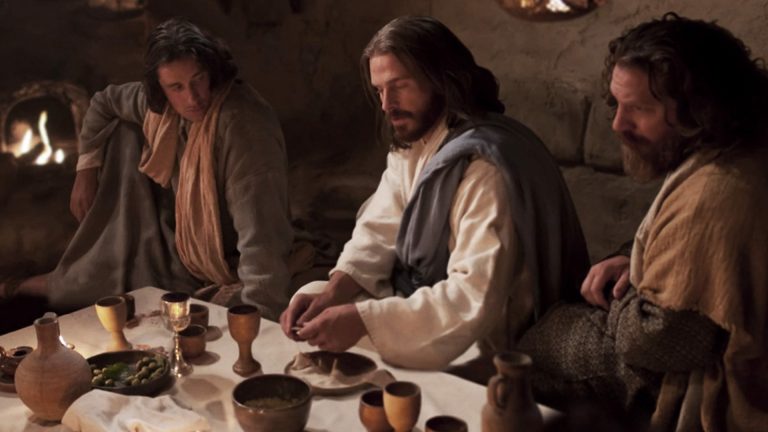Why Does God Allow Bad Things to Happen? Understanding the Balance of Good and Evil, Free Will, and Personal Growth
In our lives, we often face challenging and heart-wrenching situations that can leave us questioning the presence of a higher power, such as God. We may wonder, “Why does God allow bad things to happen?”
While this may be a difficult question to answer, it is essential to explore different perspectives that address this puzzle to better understand and accept the events that transpire in our lives.
One of the core tenets of numerous religious and spiritual beliefs is that there is a purpose for everything, even if we are not always aware of it.
This may include the idea that we grow and evolve by overcoming adversity and learning valuable lessons.
Moreover, some believe that our life experiences form part of a divine plan, ultimately aimed at a greater good that we may not yet comprehend. On the other hand, some argue that bad things merely reflect the duality of life, wherein good and evil coexist.
In essence, the reasons for God allowing bad things to happen may range from providing opportunities for personal growth to teaching us about the importance of trust and faith to maintaining an essential balance within the universe.

The Concept of Free Will
The concept of free will is central to the question of why God allows bad things to happen. Christians believe that God created humans with the ability to make good and bad choices, allowing them to experience the consequences of their actions for them to learn and grow.
This is what is referred to as “free will.“
| Reference | Bible Verse | Explanation |
|---|---|---|
| Genesis 2:16-17 | “And the Lord God commanded the man, saying, ‘You may freely eat of every tree of the garden; but of the tree of the knowledge of good and evil you shall not eat…'” | God gives Adam and Eve the freedom to choose, advising them not to eat the forbidden fruit, but ultimately allowing them to decide for themselves |
| Joshua 24:15 | “And if it is evil in your eyes to serve the Lord, choose this day whom you will serve…” | Joshua encourages the Israelites to choose whom they will serve, acknowledging their ability to make choices |
| Galatians 5:13 | “For you were called to freedom, brothers. Only do not use your freedom as an opportunity for the flesh, but through love serve one another.” | Paul’s letter to the Galatians encourages them to use their free will responsibly |
When God granted humans free will, it also came with the potential for individuals to make unhealthy choices.
While some choices lead to pain and suffering, others involve love, kindness, and generosity. The idea of free will means that humans were created neither inherently bad nor inherently good but rather capable of choosing their path in life.
This concept can sometimes be challenging to accept, as it might seem that God should intervene when someone is about to make a poor choice, especially if that choice will hurt others.
However, free will is important because it allows each person to experience the consequences of their actions, recognizes their own power and responsibility, and grow from their mistakes.
Ultimately, free will is crucial to understanding why God allows bad things to happen. In his wisdom, God gave humans the gift of choice, allowing them to be free and grow from their experiences.
Lessons and Growth Through Adversity
In addition to the concept of free will, another important aspect to consider when examining why God allows bad things to happen is the opportunity for personal growth and development that can result from adversity.

Facing challenges oftentimes helps build resilience, allows for greater empathy and understanding of others, and provides the chance to develop humility and gratitude.
Three Key Lessons Learned Through Adversity:
- Resilience: Overcoming challenges teaches us to bounce back and adapt to difficult situations, increasing our strength and determination.
- Empathy: Experiencing hardships fosters compassion and understanding, as we are better able to relate to the struggles and pain of others.
- Gratitude: Once we have faced adversity, we develop a deeper appreciation for the good things in our lives and how quickly they can change.
The Purpose of Suffering from a Christian Perspective
Let’s break down the purpose of suffering into two parts:
A. Suffering as a Tool for Spiritual Growth
Understanding the purpose of suffering from a Christian perspective is essential when considering why God allows bad things to happen.
Christians believe suffering can serve as an instrument for spiritual growth, helping individuals develop virtues such as patience, perseverance, and faith.
For example, the apostle Paul regarded his suffering as an opportunity for growth in his Christian faith. In 2 Corinthians 12:9-10, he writes,
But [God] said to me, ‘My grace is sufficient for you, for my power is made perfect in weakness.’ Therefore, I will boast all the more gladly about my weaknesses, so that Christ’s power may rest on me. That is why, for Christ’s sake, I delight in weaknesses, in insults, in hardships, in persecutions, in difficulties. For when I am weak, then I am strong.
B. Suffering as a Test of Faith
Another potential purpose of suffering from a Christian perspective is that it may serve as a test of faith. In the Bible, the story of Job exemplifies how a faithful believer can face immense suffering while still maintaining faith in God.
Through his unwavering devotion and trust in God, despite losing his wealth, health, and family, Job emerges from his ordeal with a refined faith and a deeper understanding of God’s ways.
The story of Job (Job 1-3) highlights the value of trust in God, even during difficult times:
- Job remains steadfast in his faith, refusing to curse God despite his misfortunes.
- Job’s friends are confounded by his suffering, assuming he must have done something wrong to deserve such calamity.
- God eventually intervenes, defending Job’s righteousness and rewarding him with restored fortune and family.
So, understanding the teachings of Christianity on the purpose of suffering provides valuable insight into why God may allow bad things to happen.
By considering the role of suffering in spiritual growth and as a test of faith, we can gain a greater appreciation for the power of resilience, empathy, and trust in the face of adversity.
The Balance of Good and Evil

The balance of good and evil is another vital aspect when exploring why God allows bad things to happen.
This idea suggests that both positive and negative forces are fundamental to existence, each serving its unique purpose in maintaining the delicate equilibrium of the universe.
If there was only good, we wouldn’t deeply understand what goodness truly means. Through the presence of evil, we gain a greater appreciation for good, as it provides contrast and highlights the significance of virtue, kindness, and compassion.
This concept also encompasses the idea that inherent in every challenge is the potential for beauty, positive change, or a new beginning.
Four Key Principles of the Balance of Good and Evil:
| Principle | Description |
|---|---|
| Contrast | Good and evil serve as contrasting forces that help us recognize and appreciate the value of each aspect. |
| Growth | Both positive and negative experiences help us grow as individuals, as they cultivate virtues such as resilience, empathy, and gratitude. |
| Cosmic Balance | Good and evil contribute to the overall balance of the universe, ensuring that neither force becomes dominant. |
| Opportunity and Change | Every challenge contains the seeds of a possibility for positive transformation or growth, allowing for new beginnings and change. |
In the Buddhist tradition, for instance, the concept of Yin and Yang illustrates the complementarity of opposites, proposing that good and evil are interconnected forces in a constant state of balance. The cyclic nature of life and death, joy and sorrow, and success and failure further support this idea.
Expressed in popular culture through art, literature, and film, the balance of good and evil emphasizes the duality of existence while encouraging individuals to find meaning and purpose in their struggles.
By embracing both the good and the bad, we accept that challenges and adversities are inseparable parts of our human experience.
To sum up, contemplating the balance of good and evil can help us better understand why God allows bad things to happen. By acknowledging and accepting the interplay of these forces in our lives and the world around us, we can cultivate a mindset of resilience, empathy, and gratitude, which ultimately enhances our overall well-being, spiritual development, and connection to God.
Trusting in God’s Plan and Timing
Faith and trust in God’s plan and timing are essential to understanding why bad things happen. The belief that everything happens for a reason underlies the notion of trusting that there is a divine purpose behind life’s challenges and adversities.
Three Reasons to Trust God’s Plan and Timing:
- Divine Wisdom: God’s infinite wisdom and understanding surpass our human comprehension, meaning that our limited perspective often prevents us from grasping the larger picture and purpose behind our experiences.
- Personal Growth: Trusting in God’s plan allows us to develop virtues such as patience, humility, and surrender as we learn to recognize that we are not fully in control of our lives.
- Unfolding in Time: As time passes, we may come to see how past hardships have contributed to our growth and shaped us into the individuals we are today, leading us to appreciate God’s plan in retrospect.
Biblical scripture also emphasizes the importance of putting our trust in God. For example, Proverbs 3:5-6 states,
Trust in the Lord with all your heart, and do not lean on your own understanding. In all your ways acknowledge him, and he will make straight your paths.
Conclusion
In conclusion, the question, “Why does God allow bad things to happen?” is complex and thought-provoking. Through examining various aspects, such as the concept of free will, lessons learned through adversity, the purpose of suffering from a Christian perspective, the balance of good and evil, and the importance of trusting in God’s plan and timing, we can gain a better understanding of the reasons behind life’s challenges.
The interplay of these factors helps us recognize that adversity and hardship can open the door to personal growth, spiritual development, and a deeper understanding of ourselves and the world around us.
By embracing life’s trials as opportunities for learning and trusting that God has a plan for each of us, we can cultivate a sense of resilience, empathy, and gratitude in the face of life’s most challenging moments.
So, exploring these various perspectives enables us to build a more profound connection with God and find our unique path towards love, healing, and inner peace.

Sangtea Hmar is a passionate leader of the Youth Christian Fellowship at the Electric Vengthlang Presbyterian Church in Aizawl, Mizoram, India. He is the owner of Christiantone.com and is committed to spreading the word of God. He loves to mentor youth and help them grow in their faith.






